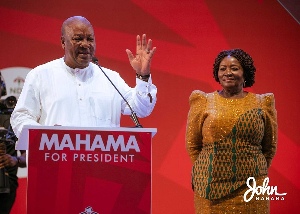By Nana Kow Blankson
It does not take much effort to destroy the hard won reputation of an institution. That is why so many institutions that tended to be the bedrocks of the country have had their reputations dented at one point in time through no fault of theirs. All it took was for some individuals to make some unfounded and wild allegations which led to the tanking of the reputation of these institutions. But that dangerous tendency if not checked could have adverse consequences on the country’s drive towards increased economic and developmental growth.
The Ghana Cocoa Board (Cocobod) has for the past three years seen so many interventions aimed at helping Ghana to once again reclaim the top spot as the world’s leading producer of cocoa by 2015. One of the biggest accomplishments by Cocobod was the payment of 80% of the world’s market price of cocoa to farmers in 2011. This was done to dissuade farmers from smuggling cocoa to other neighbouring countries to sell.
It was therefore a very remarkable feat when Ghana for the first time in its history produced over one million tonnes of cocoa in 2011, which represents 50% more of the previous year’s harvest. This remarkable success which put Ivory Coast, the world’s leading producer of cocoa on notice, infused close to 1.5 billion dollars into the country’s economy. Cocoa, which is one of the country’s cherished basket of roses is the second biggest foreign exchange earner after gold, and provides employment to about three million people which forms a quarter of the country’s workforce.
Most cocoa trees which were planted in the early 80s have outlived their usefulness; therefore, the management of the Cocobod in collaboration with the Ministry of Food and Agriculture have embarked on a 6-year re-planting of cocoa trees nationwide. The exercise which involves the production of 20 million seedlings of elite hybrid cocoa for free distribution to about 16,000 farmers for replanting was launched last month.
It is equally important to put on record that one of the main objectives of the cocoa replanting program is to provide employment opportunities for the youth in the cocoa growing areas. Another benefit that comes with the program is the technical skills that the employed youth would acquire in addition to the restoration of overage tree stocks, improvement in cocoa yield and the boost in national revenue.
Workers of Cocobod were not left out. In recognition of the efforts of the workers of Cocobod, the board and management gave each Cocobod worker a two-month salary bonus last year. And as I write, the management and union of Cocobod are in talks about salaries increases.
With all these being done to enhance the cocoa industry for the overall benefit of the country, it is disheartening for someone to hide somewhere and write that the Ghana Cocoa Board is sinking. The report further stated that, “The Ghana Cocoa Board is under the verge of sinking as all departments of the institution are currently malfunctioning due to lack of funds from the Board of Ghana’s most exported cash crop and workers are threatening to go on demonstration anytime soon.” It must be noted that this allegation which has no foundation can seriously affect the reputation of Cocobod to the International Community if not debunked.
Due to the prized quality of Ghana’s cocoa beans, currently 70% of cocoa factories in Japan prefer to process cocoa from Ghana. As the standard bearer of superior cocoa, Ghana’s cocoa is also the preferred choice for leading chocolate and beverage producers in the international commodity markets in Germany, Belgium and the Netherlands. Cocobod, I learnt is making frantic efforts to enter the Chinese and Indian markets which control a third of the world’s population.
I believe it’s high time for Ghanaians to appreciate institutions and the roles they play in the socio-economic advancement of the country. Ghana has reached a stage whereby it behooves on us to appreciate and also make concrete suggestions to move institutions forward. Just writing articles with screaming headlines have the potential of scaring would-be investors from coming to the country.
Cocobod, I believe deserves commendation and not condemnation as it has made great strides to catch the attention of the International Community. Even though there is more room for improvement, I do not believe it is proper for someone to tear Cocobod down by saying it is sinking, because if Cocobod sinks, it is Ghana that sinks.
nkowblankson@yahoo.com
Opinions of Tuesday, 15 May 2012
Columnist: Blankson, Nana Kow














